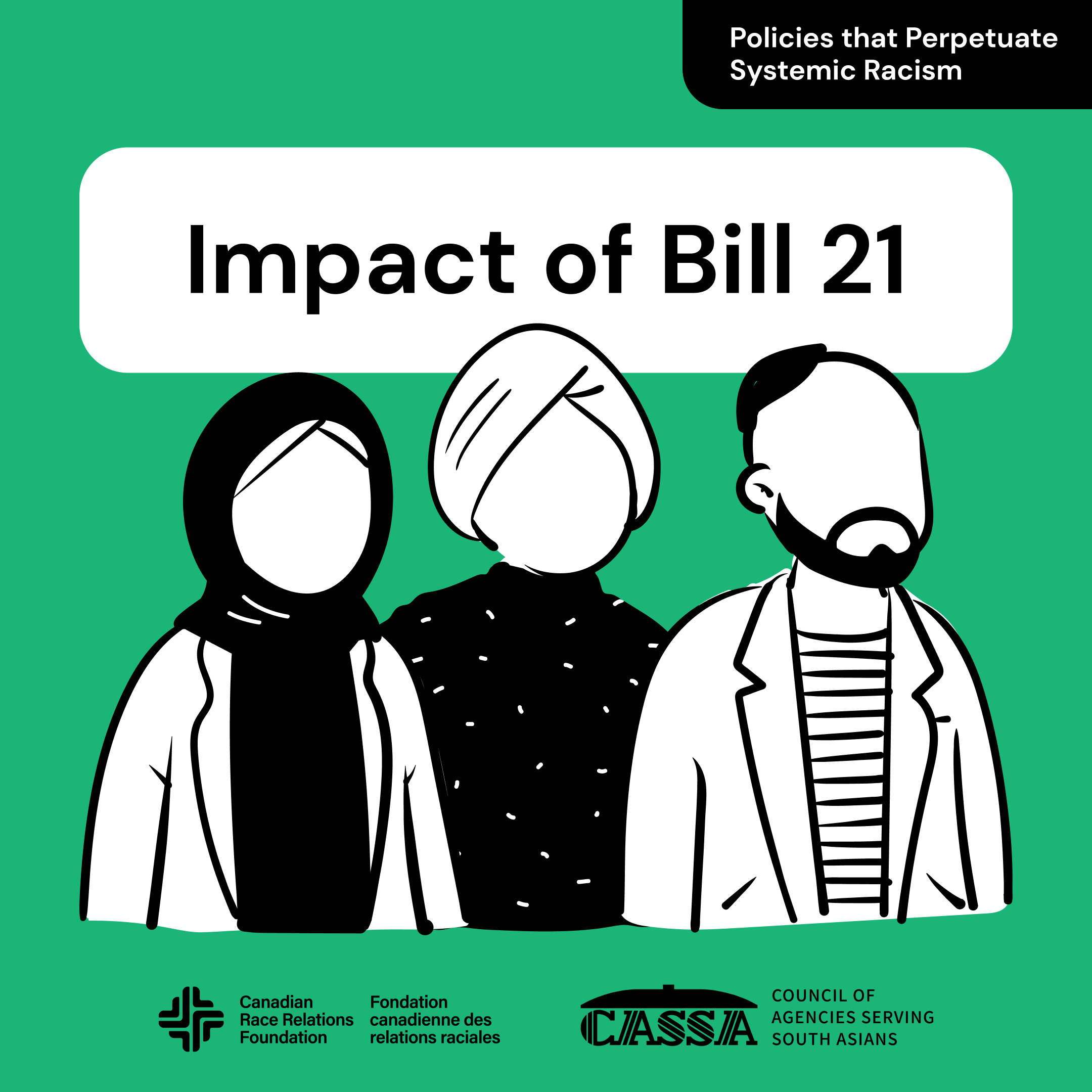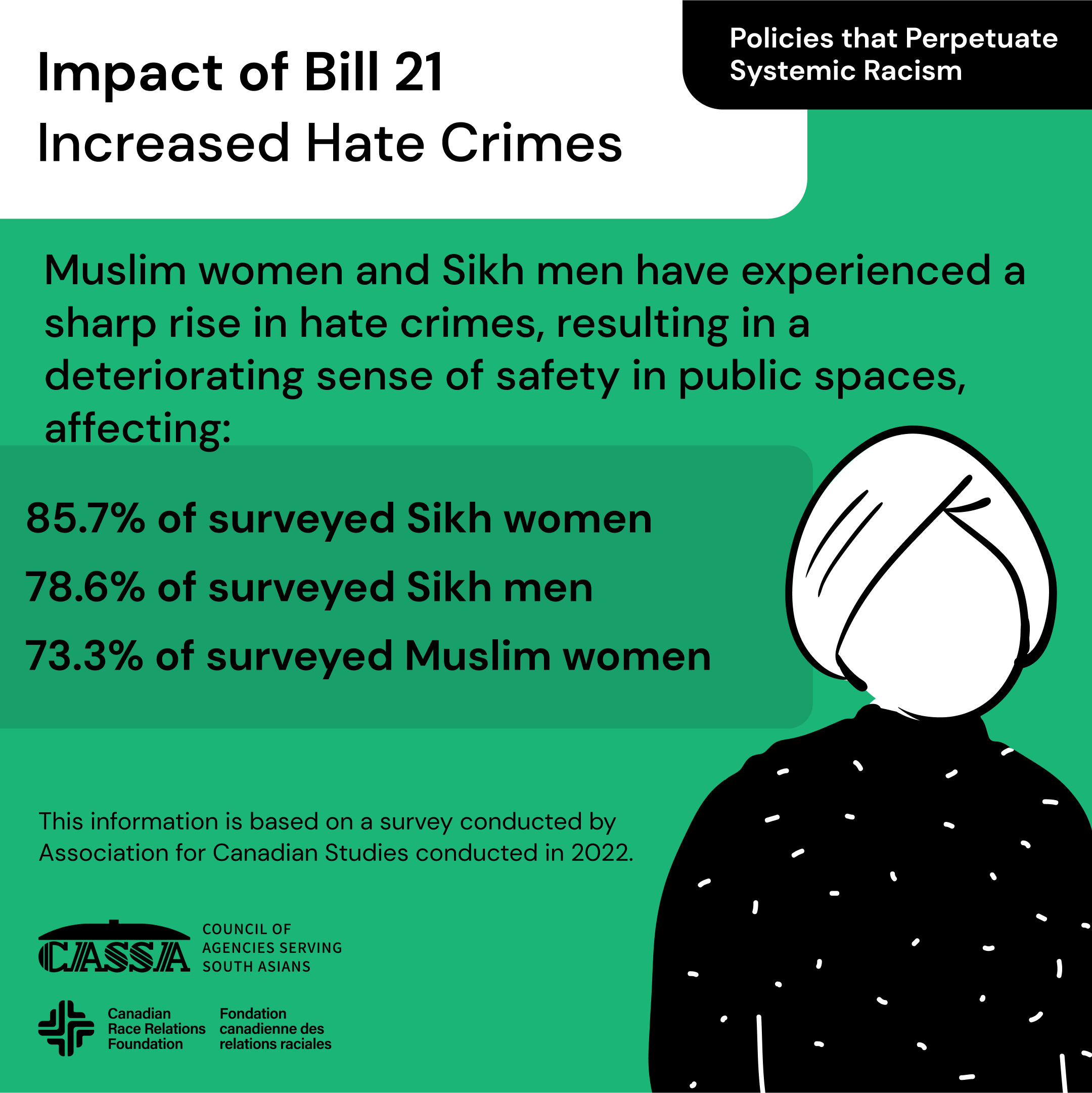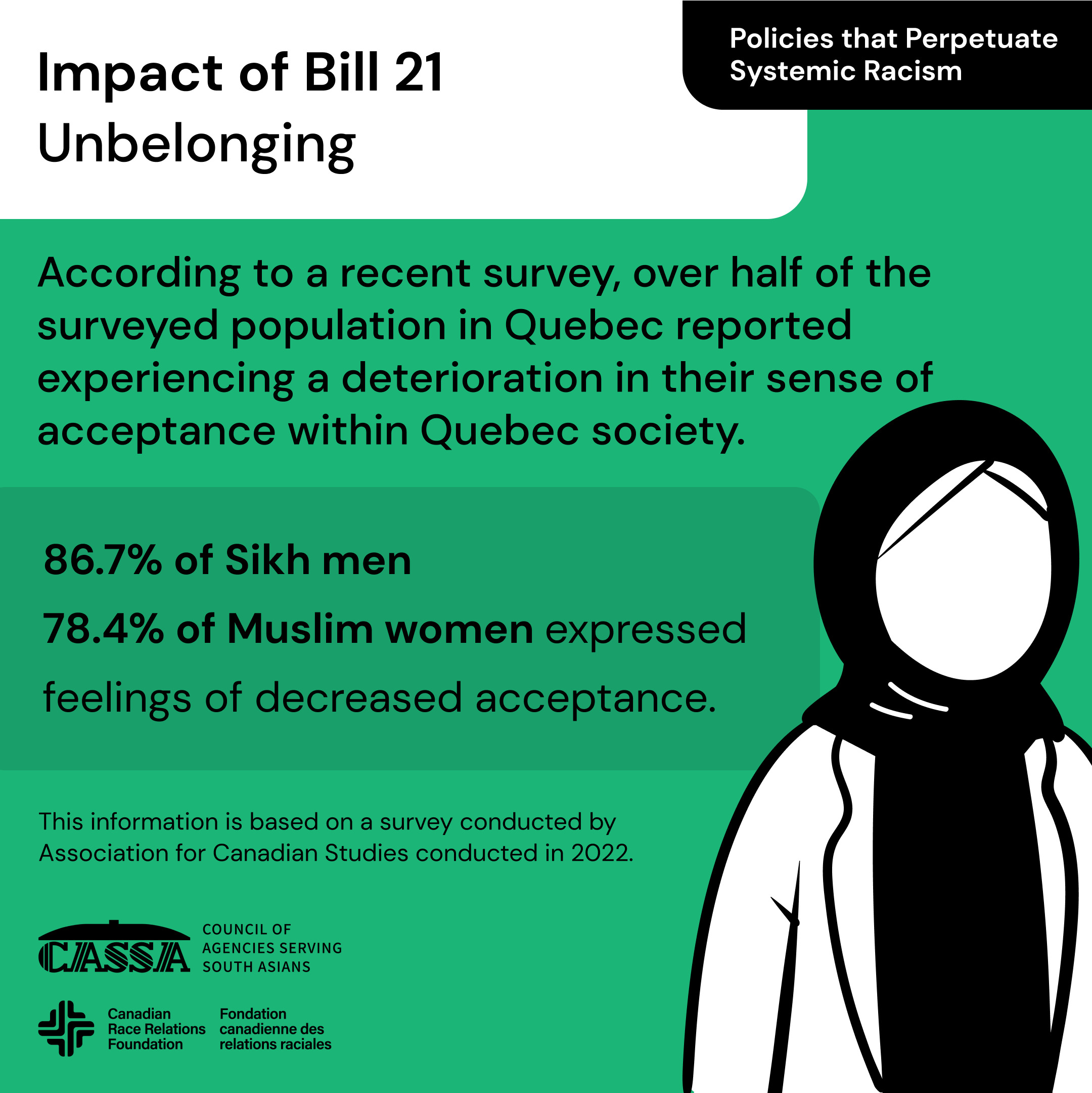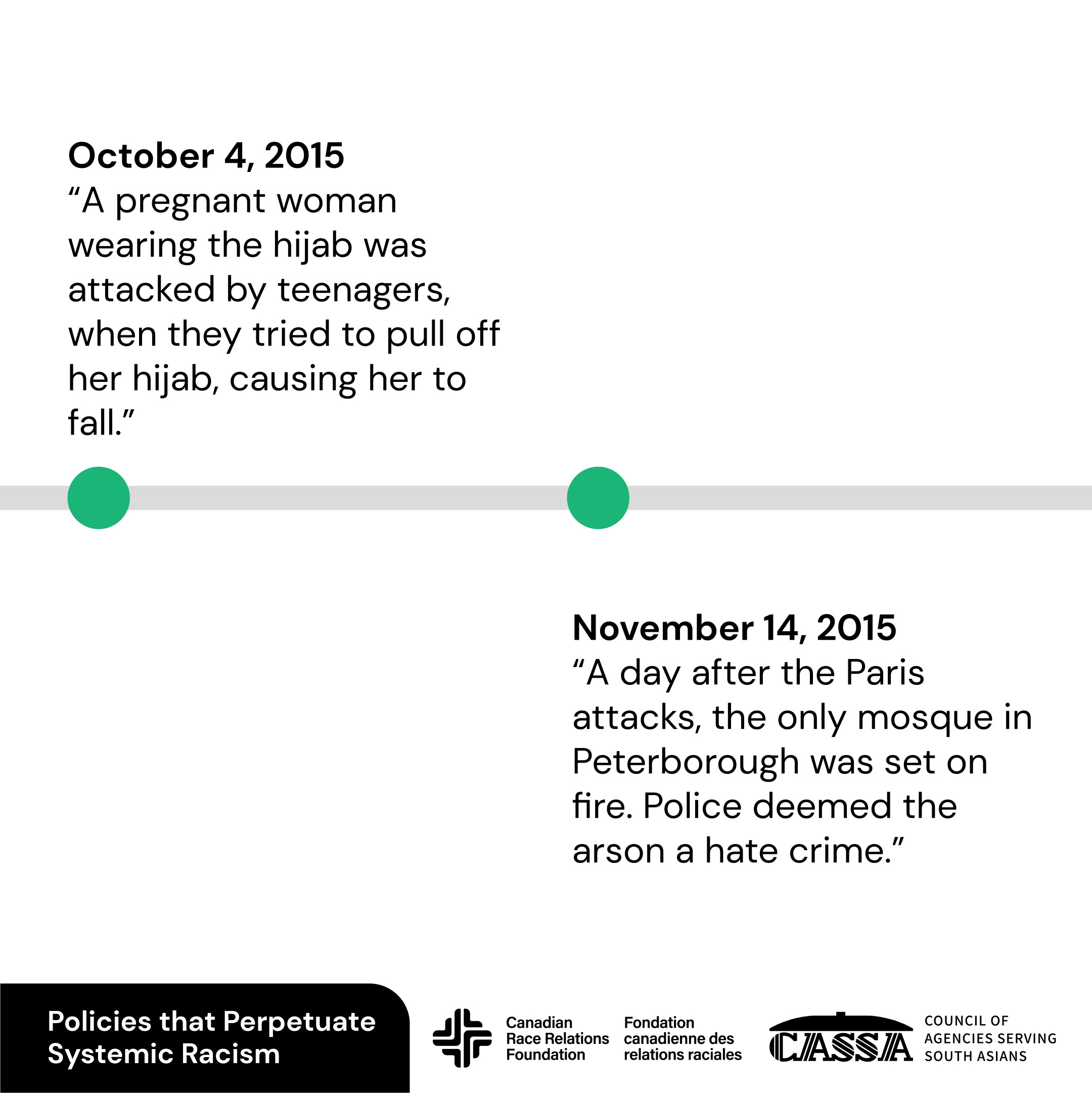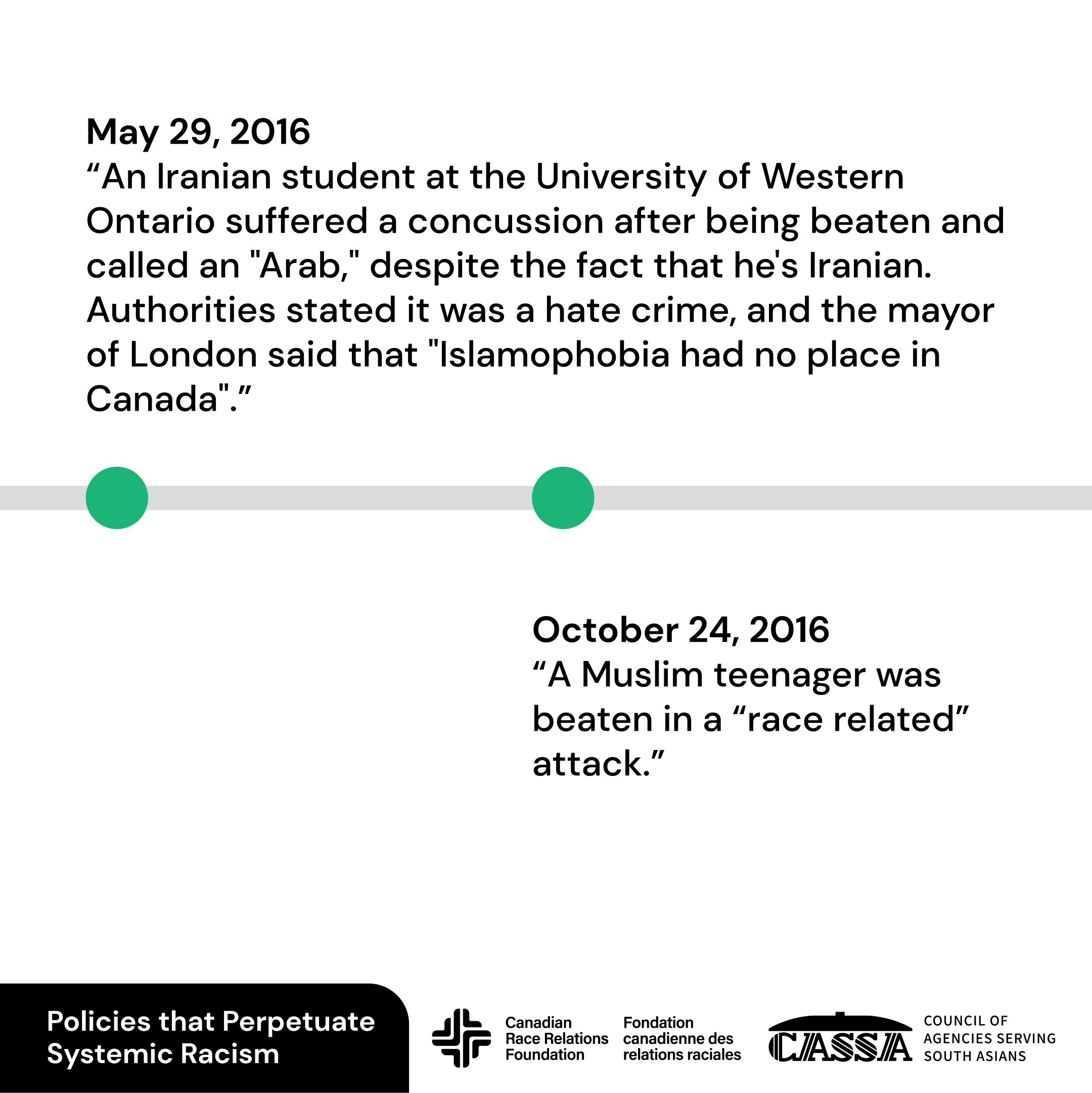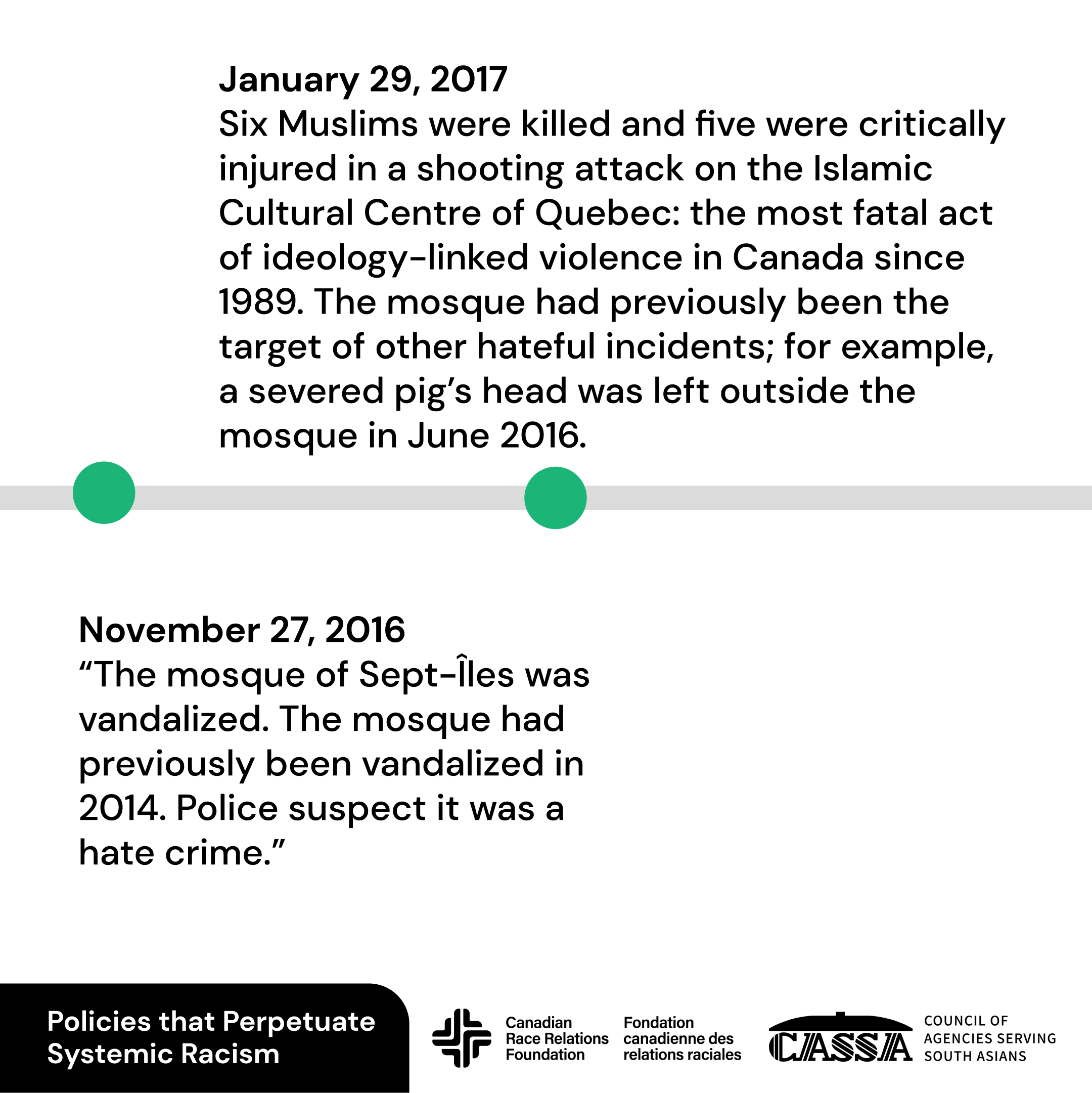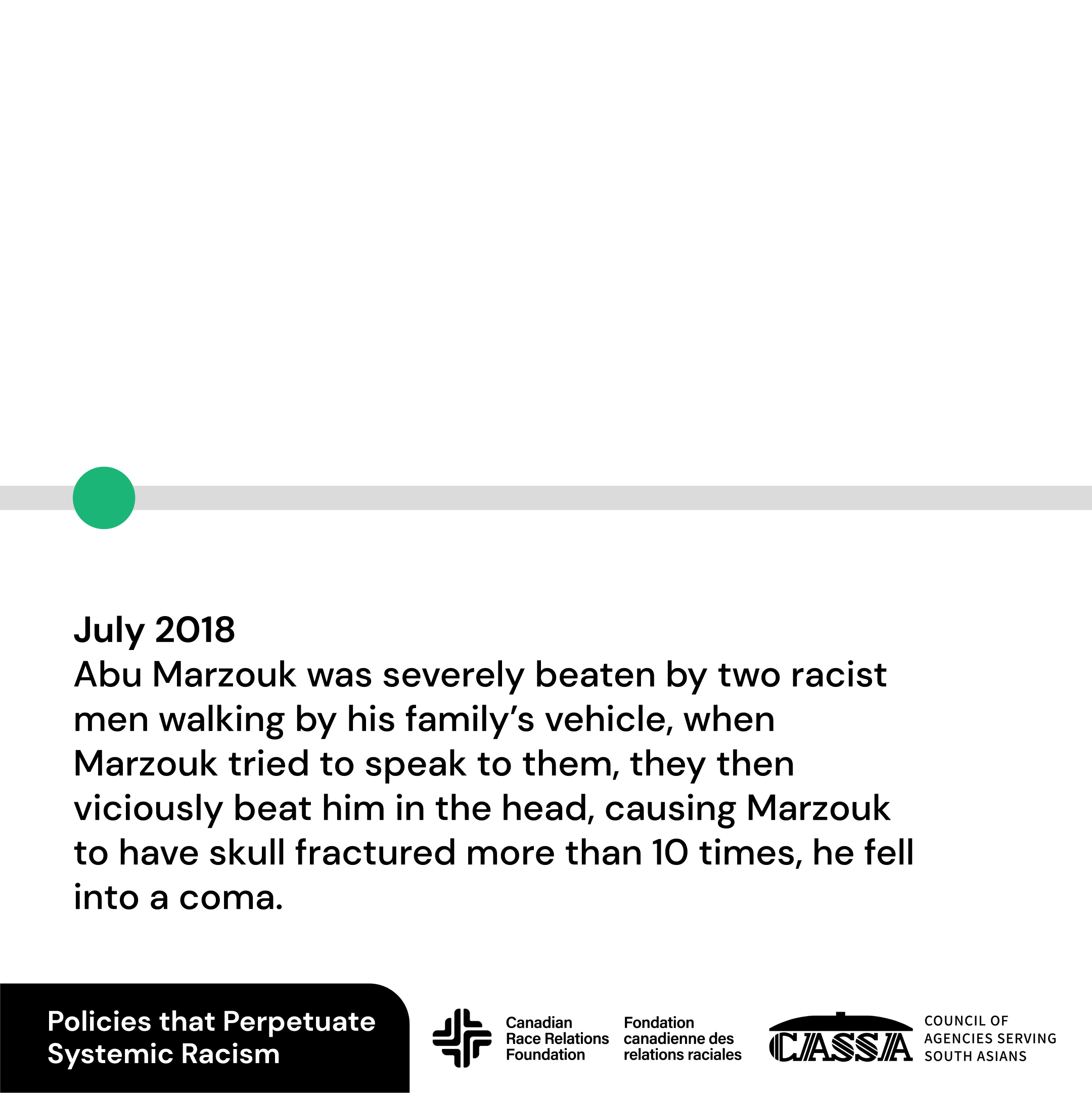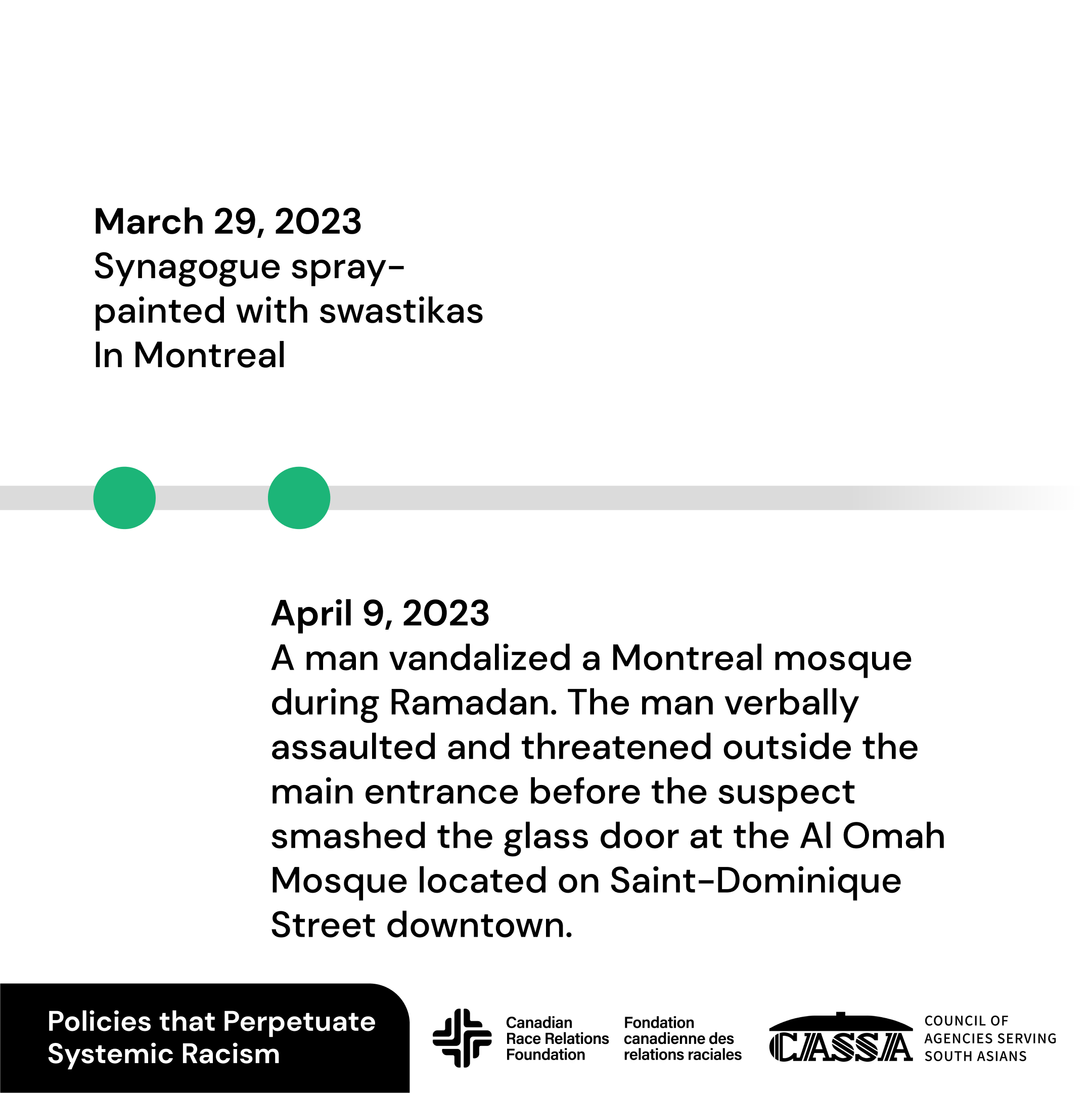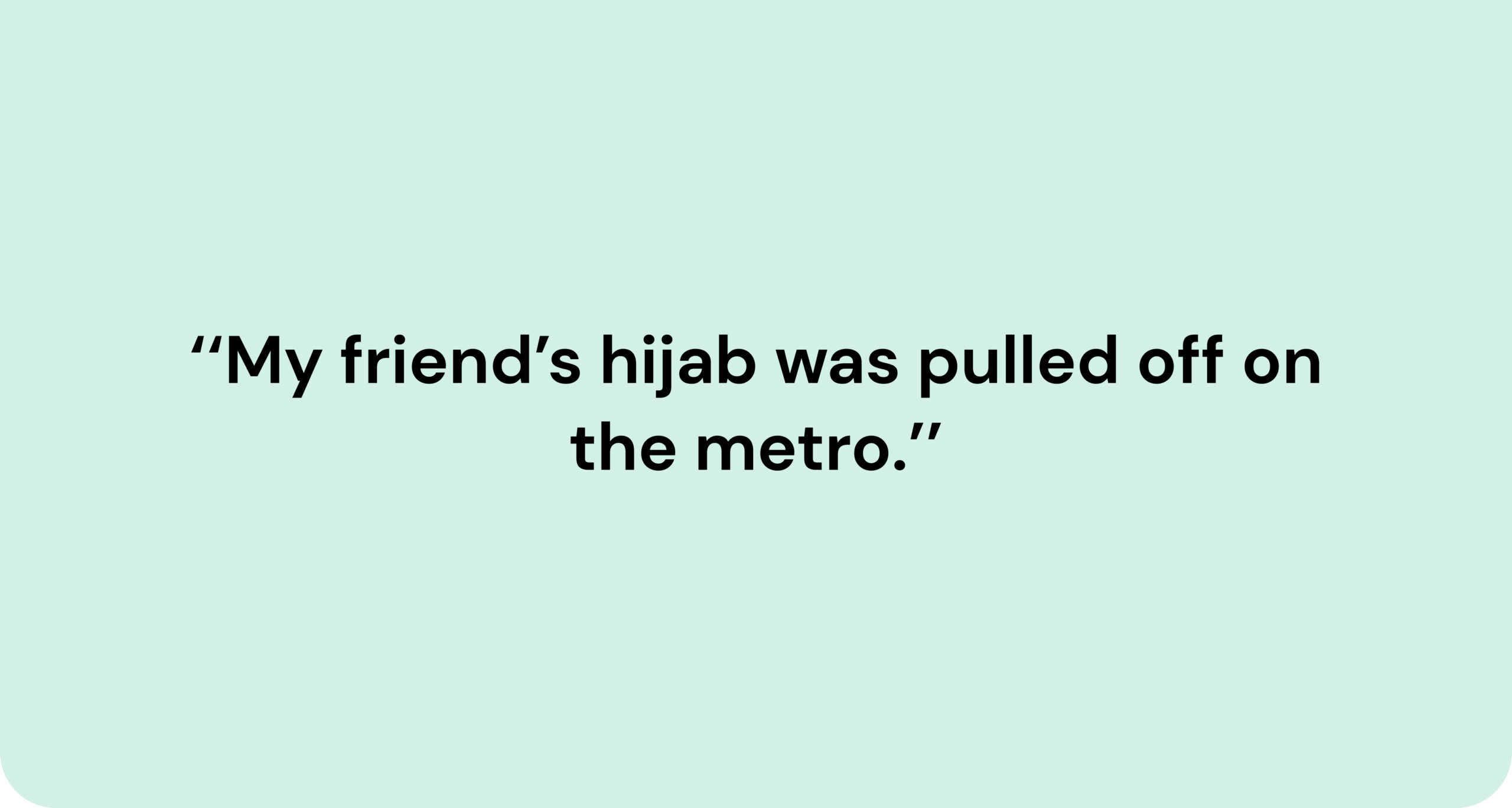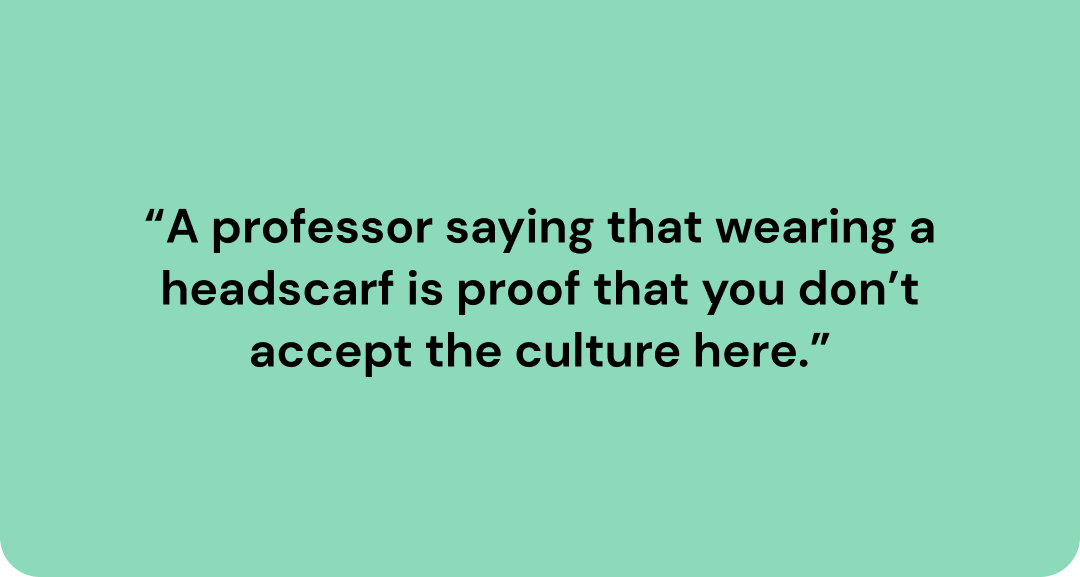About the policy
Bill 21 is a law in Quebec that came into effect on March 28th, 2019. The legislation is officially known as the “Act respecting the laicity of the state” and restricts public servants from wearing religious symbols or clothing while on the job. This includes restrictions on hijab, keffiyeh, dastar, kara, crosses, etc. The law has served as a critical concern for Muslims, Sikhs, Jews, and other religious populations in Quebec as it impedes religious freedom. It has further led to an increase in violence, instances of discrimination, and hate crimes especially against visible Muslims and Sikhs in both Quebec and other parts of Canada. Studies have found that Muslim women who wear hijab have been more susceptible to hate crimes.
Impact of Bill 21
Hate crimes
There has been a 71% rise in hate crimes targeting Muslims in Canada in just the past few years. It must be noted that not all incidents go reported and the actual number can be way higher.
The following is a short timeline of some of the incidents of increased hate crimes since the passing of the Bill.
Real Life Stories
Bill 21 has led to an increase in hate crimes and prejudicial remarks. These are real-life examples of remarks faced by religious minorities. This information is based on a survey conducted by the Association for Canadian Studies conducted in 2022.
Hateful remarks and prejudicial treatment are not limited to the public sphere. These are real-life example of treatment faced by university students in department of education. Sourced from “Survey on the effects of Bill 21 on Faculties and Departments of Education in Quebec universities, their students and personnel” by Observatoire sur la Formation à la Diversité et l’Équité, March and April 2020.
Animated real-life stories
Watch these animated stories bringing to life the experiences of individuals impacted by Bill 21.
Rifaa’s Story (English)
Rifaa’s Story (Punjabi)
Gurfateh’s Story (English)
Gurfateh’s Story (Punjabi)
Gurfateh’s Story (Arabic)
Gurfateh’s Story (Urdu)
Blog posts

Maha’s Story
I attended a prestigious university in Quebec for my undergraduate degree, which hosted students and professors from all over the world. Yet, they belonged more than I did, despite being brought up in Canada. Strayhorn et al. (2012) describe the sense of belonging as “students’ perceived social support on campus, a feeling of connectedness, the experience of mattering or feeling cared about, accepted, respected, valued by, and important to the group (e.g., campus community) or others on campus (e.g., faculty and peers)” (p. 3). This was overwhelmingly not my experience, as for the four years I grappled with feeling excluded, different, invisible, and disliked because of my hijab.

What does Hijab mean to me?
hijab is me and I am hijab
my most important identity is my faith.
It comes above anything else
to me, hijab is my way of being Muslim in the world.
how we feel about things fluctuates and changes over time

